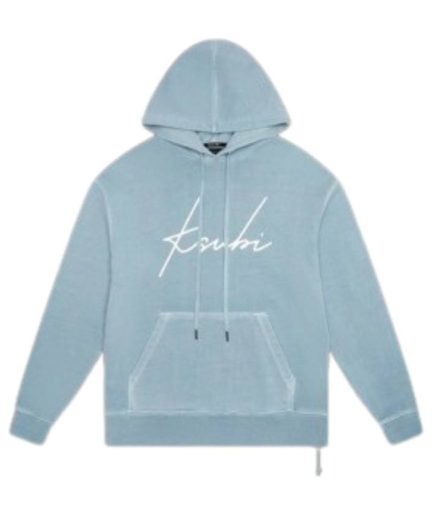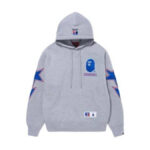Introduction to Ksubi Clothing
Exquisite Ksubi Clothing: Evolution From Lifestyle to Fashion. When you think of Ksubi, you don’t just picture jeans or hoodies—you picture an attitude, a lifestyle, and a story stitched into every seam. The Australian-born label is one of the few brands that successfully blurred the lines between underground rebellion and mainstream fashion dominance. What started as a group of creatives experimenting with denim in Sydney has evolved into a global fashion powerhouse adored by celebrities, trendsetters, and everyday streetwear enthusiasts.
Ksubi represents more than just clothing; it embodies freedom, defiance, and individuality. Unlike many fashion houses that aim to please the mass market, Ksubi Clothing built its legacy on standing out rather than fitting in. From spray-painting logos on billboards to staging wild runway shows, the brand positioned itself as a cultural movement before the world even caught on to its genius.
But how did a small Australian denim label rise to international fame, influence global streetwear, and maintain a cult following for decades? To truly understand the evolution of Ksubi, we need to dive into its roots, rebellious spirit, and transformation from a lifestyle-driven brand into an influential fashion icon.
Origins and Early Days of Ksubi
Ksubi’s story begins in 1999 in Sydney, Australia, when a group of creative friends—Dan Single, George Gorrow, Paul Wilson, and Gareth Moody—decided to start a clothing label. At the time, the denim market was saturated with mainstream styles that felt too polished and predictable. These young rebels saw an opportunity to create jeans that better reflected their lifestyle—raw, unfiltered, and authentically street.
Their first move was far from ordinary. Instead of producing safe, commercial denim, Ksubi introduced jeans that were ripped, slashed, and heavily distressed. It was denim that looked lived-in and carried stories within its fabric. This unapologetic approach was initially risky, but it quickly drew attention from people tired of cookie-cutter fashion.
Ksubi also made headlines with its unconventional marketing stunts. One infamous example was when the founders released live rats on the runway during a fashion show—an act that shocked audiences but cemented the brand’s reputation as a fearless disruptor. Such rebellious tactics positioned Ksubi as more than just a clothing company; it was a cultural statement that resonated with young creatives, skaters, and musicians alike.
Despite financial struggles in the early years, Ksubi’s uniqueness made it impossible to ignore. Slowly but surely, the brand gained a loyal following in Australia before catching international attention.
Ksubi’s Signature Identity
If you spot a pair of distressed jeans with a small cross embroidery near the back pocket, chances are you’re looking at Ksubi. The brand’s identity is rooted in a raw and rebellious aesthetic, and that’s exactly what has kept it at the forefront of streetwear for decades.
One of the defining features of Ksubi is its denim craftsmanship. Unlike typical mass-produced jeans, Ksubi pieces are meticulously designed to carry a lived-in, edgy look. Ripped knees, frayed hems, faded washes, and unique cuts are not flaws—they’re intentional marks of individuality. Each pair tells a story, making wearers feel like they’re putting on more than just clothing, but rather a piece of art.
Alongside denim, Ksubi Hoodie built a reputation for its graphic-heavy streetwear. From bold prints to provocative slogans, their hoodies, tees, and jackets challenge societal norms and spark conversations. This graphic-driven identity allows fans to wear Ksubi not only for style but also as an expression of rebellion and personality.
The brand’s iconic cross logo—usually seen stitched onto denim or printed on streetwear pieces—serves as a subtle yet powerful marker of authenticity. Minimal but recognizable, it represents the brand’s roots in underground culture while symbolizing defiance against fashion conventions.
Together, these elements—distressed denim, bold graphics, and the cross logo—form Ksubi’s DNA, creating a brand identity that can’t be mistaken for anything else.
Ksubi as a Lifestyle Brand
Ksubi was never just about selling clothes. From the very beginning, it was about creating a lifestyle that resonated with rebellious youth. The brand connected with people who lived outside the mainstream—artists, musicians, skateboarders, and rule-breakers who wanted their clothing to reflect their unapologetic way of life.
One of the key reasons for Ksubi’s rise was its deep involvement in music culture. The brand collaborated with musicians and became closely associated with rock, punk, and hip-hop scenes. Wearing Ksubi wasn’t just a fashion choice—it was a statement of belonging to a countercultural movement.
Over the years, Ksubi engaged in collaborations with various artists and designers, bridging the gap between fashion and art. These partnerships created limited-edition collections that not only expanded the brand’s reach but also reinforced its identity as a creative hub rather than just a clothing company.
Equally important was Ksubi’s ability to build a community. Through events, pop-ups, and street campaigns, the brand attracted a loyal following that went beyond customers—it created fans and believers. People weren’t just buying jeans; they were buying into an identity that stood for independence, rebellion, and self-expression.
This lifestyle approach is what gave Ksubi longevity. Unlike brands that rise and fall with trends, Ksubi created a movement, making it less about fashion seasons and more about a timeless mindset.
The Transition to Global Fashion Recognition
For years, Ksubi thrived as a niche label with a strong underground following, but its transition to global recognition didn’t happen overnight. It was a combination of persistence, clever branding, and the undeniable appeal of its designs that pushed Ksubi beyond Australia and onto the world stage.
The turning point came when celebrities and global icons started wearing Ksubi. From Kanye West to Rihanna and A$AP Rocky, high-profile figures were spotted rocking the brand, instantly giving it credibility in the international fashion scene. For a label born out of rebellion, having global stars embrace it was a sign that Ksubi had broken through cultural and geographical barriers.
Another factor was strategic expansion. Ksubi opened flagship stores and partnered with major retailers, ensuring that its pieces reached fashion capitals like New York, London, and Tokyo. This exposure transformed Ksubi from a local streetwear label into an internationally recognized name.
Interestingly, Ksubi also managed to bridge the gap between streetwear and luxury fashion. While it never abandoned its rebellious roots, the brand earned a spot in the wardrobes of fashion-forward elites. This rare balance allowed Ksubi to appeal both to underground youth and high-end fashion enthusiasts. Read More…..
By carefully navigating its identity while expanding globally, Ksubi cemented itself not just as an Australian export but as a global force in modern streetwear and fashion.



